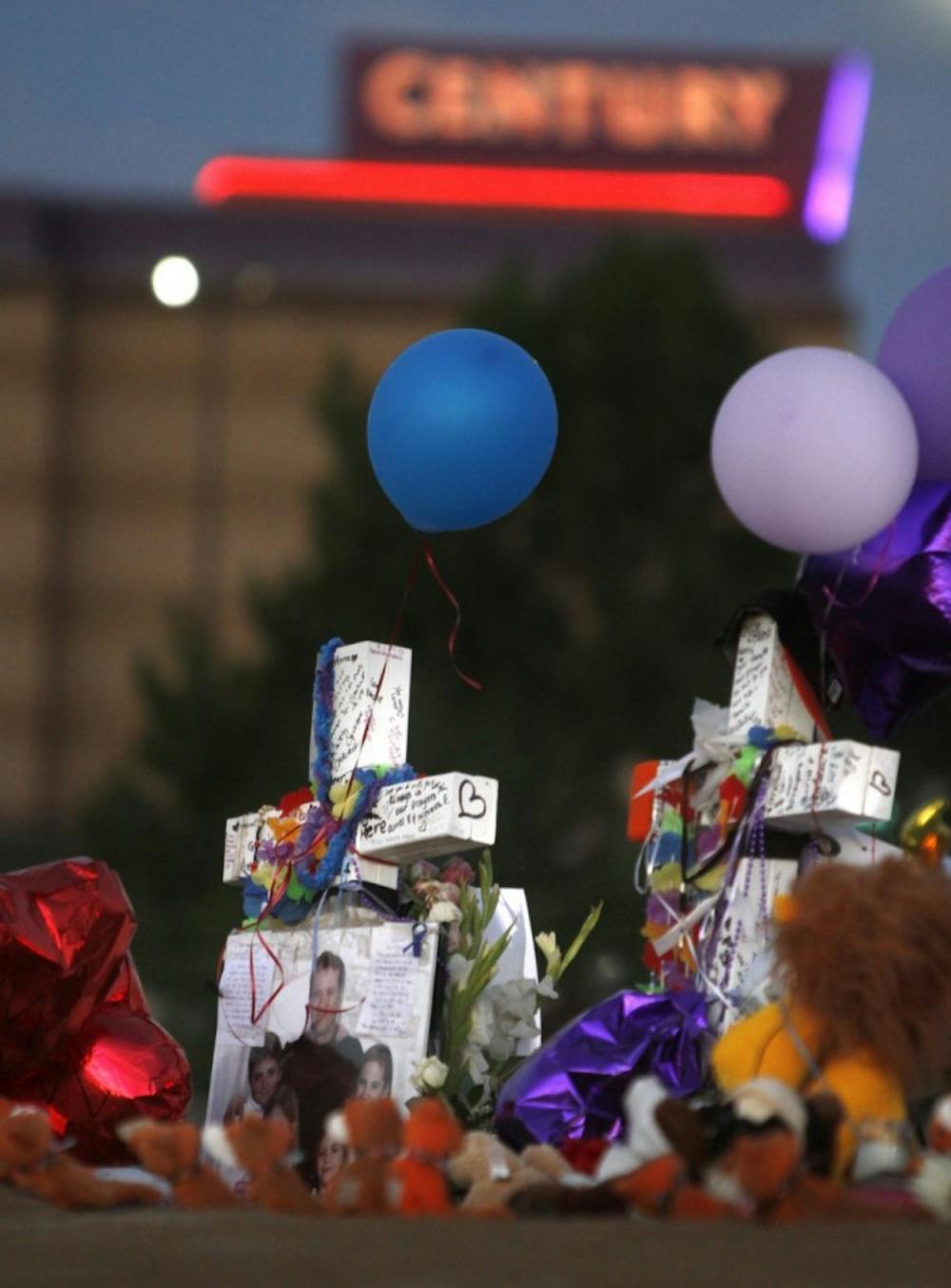After a real-world tragedy befell Aurora, Co. early last Friday, millions of Americans escaped to the digital world to express a wide range of strong emotions. Now, as the online conversation is trailing off, it’s worth considering the implications of turning to social media in the wake of such emotional events.
Many of the sentiments expressed on Facebook and Twitter in the immediate aftermath of the shooting were seemingly genuine and wholly appropriate. Prayers for the victims and sympathy for their families circulated widely, and Christian Bale, heeding the collective wishes of social media users at large, eventually visited the victims of the shooting at the hospital. But when the public eye inevitably turned to the accused shooter, James Holmes, the conversation quickly took an impersonal turn.
Within hours after the alleged shooters’ name was released publicly, the Facebook page of Denver resident James Holmes, 22, was flooded with friend requests and hateful messages. Thousands of Americans felt compelled to not only to add an alleged mass murderer to their digital circle, but also to let him know he was a terrible human being.
[quote] Emotion is a powerful force, and it should be shared not amongst users, but amongst people. [/quote]
The James Holmes who entered the AMC Theater with a handgun, a shotgun and an assault rifle did a terrible thing, and probably deserves to be told so. But that James Holmes doesn’t have a Facebook. The James Holmes whose Facebook page received such heavy traffic that day is similar to the accused killer in name only, yet achieved brief but poignant notoriety for a crime he didn’t commit. He finally put an end to the madness with a short but pointed message:
“Dearest random Facebook people who keep confusing me for a mass murderer and yet still send me Facebook requests.;
I appreciate the fact that you are trying to become better-informed about the occurrences last night in Aurora, but you have been somewhat mislead, in that I am not the man who did it. I am not a 24-year-old gun-slinging killer from Aurora, I am a 22-year-old book-slinging mass eater from Littleton. Somewhat distinct, I would assume. But I would appreciate if you would read this particular post an not assume that it would be interesting to be friends with someone on Facebook who is very probably going to be in jail and not be able to confirm your friend requests anyway, or even be friends with his girlfriend, who had the rather interesting experience of having to tell someone she had a job interview with that she is not, in fact dating a serial killer. James Holmes happens to be a pretty common name, surprisingly, so try not to jump the gun.
Regards, a different guy named James Holmes.”
It is easy to understand how a mistake like that happens, but let’s pretend for a moment the shooter did have a Facebook. Even if he was able to somehow check the thousands of notifications on his homepage while being held in policy custody – an absurd possibility, to be sure – what did his newly acquired enemies hope to achieve by bombarding him with digital hate mail? The obvious answer is to release an intense surge of anger, shock, confusion and sadness – the emotions most often triggered by acts of seemingly senseless violence. But in a world without social media, would James Holmes have been searched for in the Denver-area phone book? Would his address have been Googled? Would the general public have taken the time to write him a letter or give him a phone call, in an effort to express those same feelings? Some might have, but not nearly as many.
It was more than just the seeming ease of contacting Holmes on Facebook that inspired thousands to search for him on the social network. Emboldened by the guarantee of having the both the first and the last word on the matter, thousands of Facebook users felt comfortable trying to contact a psychologically unstable stranger with the sole purpose of telling him he was so, a fact he almost certainly knew already. Their messages, short little bursts of outrage that Holmes never saw, will eventually fade completely into the digital abyss, unreceipted and ultimately forgotten. Expression, in that manner, is futile, but it is now an all-too-easy resort.
When the initial shock subsided, the issues surrounding the event began to surface. Journalists, columnists and politicians on both sides of the political spectrum wrote and spoke about gun laws and health care, both mental and physical. Many Americans used Twitter and Facebook to partake in the larger discussion by posting links to columns and videos that offered compelling arguments for change. But just as many chose instead to post truncated rants and half-baked opinions, many beginning with “If someone else in the theater had had a gun…”
It’s easy to post controversial statements on Facebook or Twitter. Such comments aren’t subject to the same risk of rebuttal as those exchanged in person-to-person conversation. The online circulation of emotionally charged, inflammatory statements after Aurora is not surprising, but it is rather disheartening. In many cases, social media was used not as a means to share information, but as an emotional outlet. People turned not to each other to discuss the issues at hand and offer comfort after such an upsetting event, but rather to the computer screen to wage unilateral attacks on Holmes, the government and the health care system before abandoning the issue altogether. Tragedies such as the shooting in Aurora leave us all reeling, and we should use these events to unite emotionally and jumpstart the necessary conversations prerequisite to change. Emotion is a powerful force, and it should be shared not amongst users, but amongst people.


